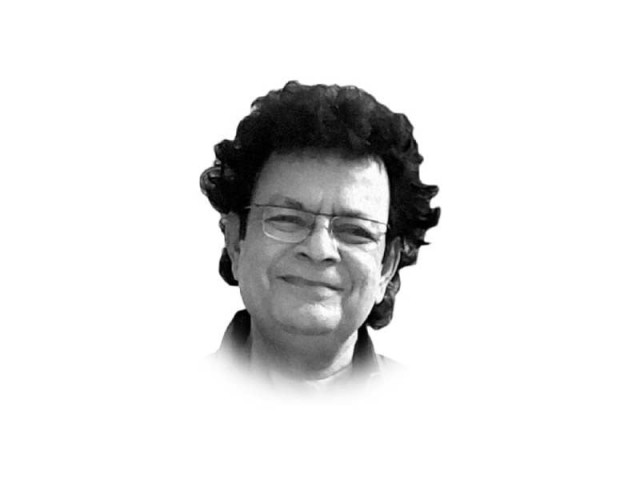Pakistan, a graveyard of questions
First human child, who opened his eyes and saw the world around him with wonder, was the first philosopher

Japanese writer Chokodo Shujin has said; “Modern society is facing an existential crisis. People everywhere, on every occasion, talk and shout about this crisis of thought. But they do not understand what they are talking about, what it is that they are crying out for. No, in fact, speaking and shouting without understanding, and, especially, without wanting to understand, is itself a feature of the crisis of thought. What is expressed in the cries of the crisis of thought is the very lack of theoretical consciousness, the very poverty of thought. Indeed, it is not the aim of those who cry out to clarify the essence of things and to develop thought, but, instead, their purpose is the exact opposite. It is their aim to make thought impoverished, imprisoned, and empty, and thus to plot not for thought itself, but rather for the sake of some other agenda altogether. At this time, those who seek the truth of thought must not be lost, startled, or frightened by their cries, but should seek to sharpen their theoretical consciousness and become more daring.”
There is a famous Jewish proverb: when a man thinks, God laughs because the truth comes out from His hand. The Greeks taught us not only to think but also to think on our own thinking. Thinking is actually searching for truth. When you find the truth, you find yourself. Before that, you are searching for yourself.
The Allegory of the Cave is a philosophical concept presented by the ancient Greek philosopher Plato in his famous work, The Republic. Plato describes a group of people imprisoned inside a dark cave since birth. These individuals are bound in such a way that they can only see the back wall of the cave, and behind them is a fire. Objects are placed between the prisoners and the fire, casting shadows on the cave wall. The prisoners can only perceive these shadows, which they believe to be the entirety of reality. Plato then introduces the idea of a hypothetical escape of one of the prisoners. This person is freed from their bonds and ventures out of the cave into the outside world, which is filled with sunlight and a variety of objects. At first, this person is dazzled by the brightness and may find it challenging to adjust to the new reality. However, he gradually comes to see the true nature of the world, realising that the shadows in the cave were mere illusions and not the ultimate reality.
The first human child, who opened his eyes and saw the world around him with wonder, was the first philosopher. When this child grew up, hundreds of questions arose in his mind like what is this universe? Has it been created by a sentient being or it has come into existence automatically? What is this series of life and death and is there any life after death?
People started thinking and asking questions. When questions were not answered, they began to create their own answers. But the questions still didn’t end and the caravan of humanity reached the 6th century BC when Gautama Buddha in India, Confucius in China and Zarathustra in Iran seem to be busy lighting the candles of truth and answering the questions vexing for centuries. In the same century, philosophy began in Greece and seven wise men of Greece — Thales, Solon, Pittacus, Bias, Chilon, Cleobulus and Periander — who were also close friends sat with their heads together. They managed to find answers to all the fundamental questions. Then, as the questions continued to rise over time, the philosophers of the time searched for their answers. Thus the caravan of humanity entered the 20th century.
Even today, questions arise and answers are sought. We, in Pakistan too, have been burying our questions for 76 years instead of finding their answers. Resultantly, Pakistan has become a big graveyard of questions. Every unanswered question gives rise to countless new questions. That is why the number of people in Pakistan today is less and the number of questions more. We are thus more afraid of these questions than ourselves — the questions that are not letting us live or move forward. We are standing in a corner wondering where to go after avoiding the questions.
Published in The Express Tribune, August 9th, 2023.
Like Opinion & Editorial on Facebook, follow @ETOpEd on Twitter to receive all updates on all our daily pieces.















COMMENTS
Comments are moderated and generally will be posted if they are on-topic and not abusive.
For more information, please see our Comments FAQ